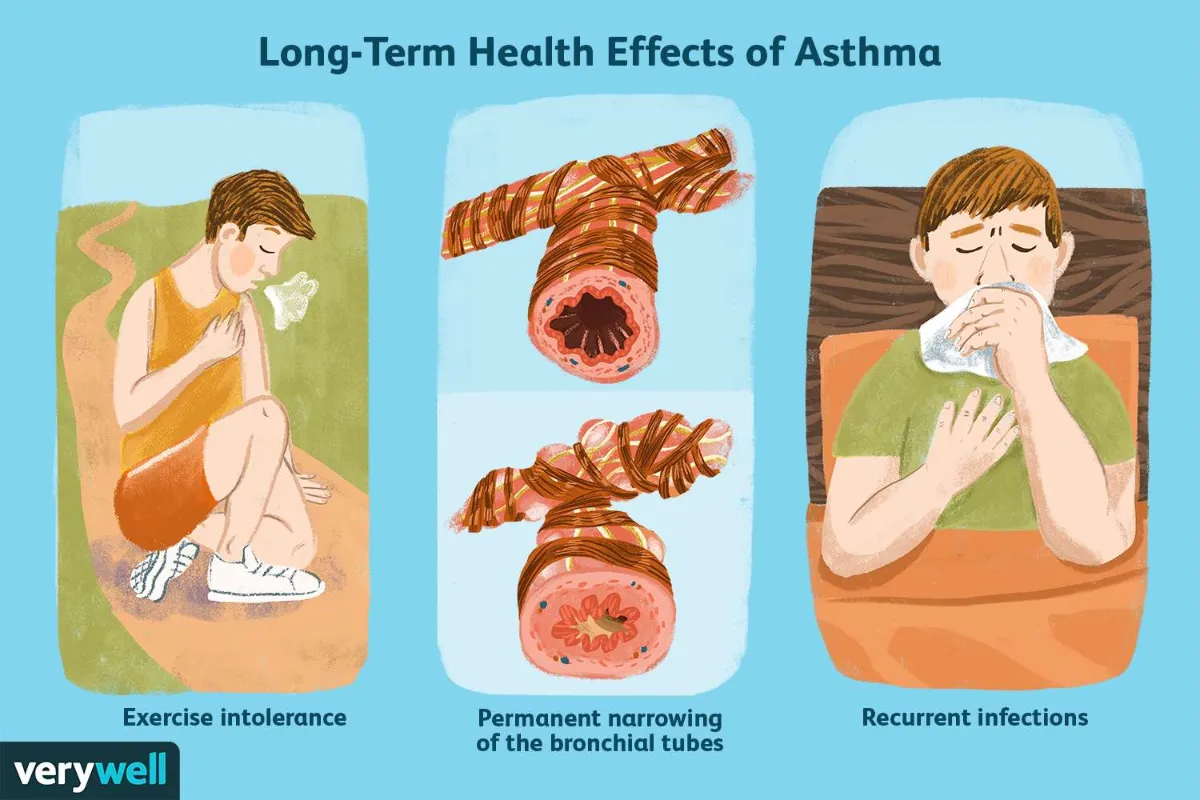Asthma is a condition that affects your breathing by causing inflammation and narrowing of the airways. Over time, it can get worse. Although there is no cure, early treatment can help prevent serious problems.
Short-term and Long-term Problems
Asthma can cause both immediate and lasting issues. Short-term problems include asthma attacks, while long-term issues might involve obesity or depression.
When to Seek Emergency Help
If your asthma symptoms don’t improve after using an inhaler, you should get medical help right away. Emergency care is needed if you experience:
- Extreme difficulty breathing
- Severe chest pain
- Trouble walking or talking
- A bluish tint to your skin or lips
Common Asthma Triggers
Asthma flare-ups can be caused by various factors, including:
- Pollen
- Dust mites
- Pet dander
- Cigarette smoke
- Household cleaners
Physical activity can also trigger asthma in some people, known as exercise-induced asthma. Emotional and medical factors can play a role too. Keeping a record of your asthma attacks can help identify your specific triggers.
Sleep Problems
Some people with asthma experience symptoms mostly at night, leading to sleep deprivation. This can affect your overall health, increase the risk of diabetes, weaken your immune system, and contribute to depression.
Lack of Exercise
Asthma might stop some people from exercising. While exercise can trigger asthma, it also helps strengthen the lungs and heart. Not exercising enough can increase the risk of diabetes, high blood pressure, weight gain, and depression.
Side Effects of Asthma Medications
Asthma treatments often involve medications that can have side effects, especially with long-term use. These side effects might include:
- Rapid heartbeat
- Hoarseness
- Throat irritation
- Oral yeast infections
- Insomnia
- Acid reflux
- Increased eye pressure
- Bone thinning
If your medications aren’t working as well as they used to, talk to your doctor about adjusting your treatment plan.
Airway Changes
Chronic inflammation from asthma can lead to permanent changes in the airways, known as airway remodeling. This can cause:
- Loss of lung function
- Chronic cough
- Thickening of airway walls
- Increased mucus production
- More blood flow in the airways
Severe Asthma and Respiratory Failure
Severe asthma increases the risk of respiratory failure, where not enough oxygen reaches the blood. This is a serious condition that can be life-threatening if not treated immediately.
Recovery from Illness
Asthma doesn’t increase your risk of respiratory illnesses like pneumonia or COVID-19, but it can make recovery take longer.
Treating Asthma Complications
If you have asthma complications, contact your doctor immediately. In severe cases, emergency treatment might include oxygen, fast-acting medications, or steroids. A breathing tube might be necessary in extreme situations.
Living with Asthma
Asthma is a serious condition, but with proper care, you can live a healthy, active life. It’s important to follow your treatment plan and know when to seek medical help. If your symptoms worsen or you need to use your inhaler more often, consult your doctor to adjust your treatment.

